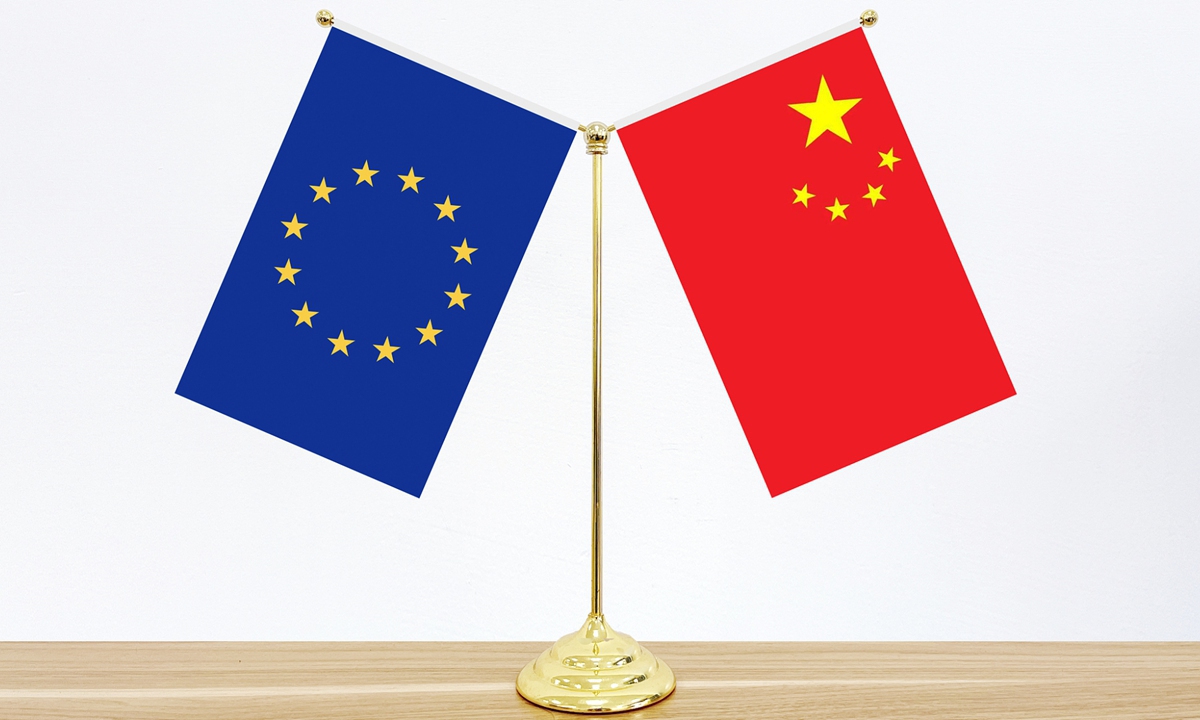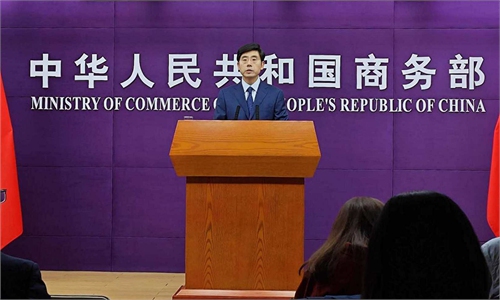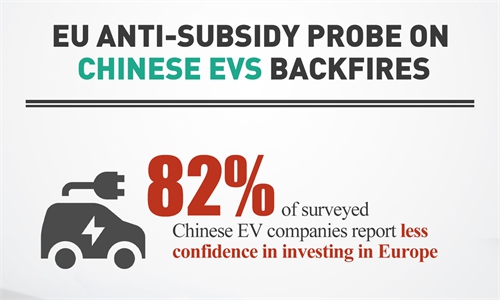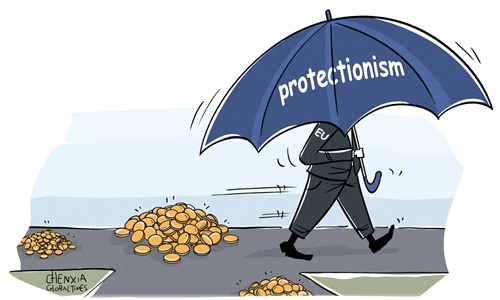If the EU wields the trade stick, how could China take the hit?: Global Times editorial

Photo:VCG
Is the European Union (EU) still a supporter of free trade? Or is it wielding the trade stick targeting China? The world is watching it with great concern. Since October 2023, the EU has continuously introduced trade and investment restrictive measures against China, which have amounted to 41 items so far. Within only nine days from May 16 to 24, the EU launched five new anti-dumping investigations against China, involving $1.71 billion. The frequency and density have reached record levels. In the investigation of the European Commission (EC), the EU has abused restrictive measures and flagrantly violated the WTO rules and standards, jeopardizing the principle of fair and free trade. It has also provoked widespread concern in the international community.
Who actually initiated the dispute? Let's take a look at the following facts. On September 13, 2023, in the State of the European Union speech, EC President Ursula von der Leyen, launched a "surprise attack" on China by publicly announcing that it would launch an anti-subsidy investigation into the imports of electric vehicles (EV) from China, without prior notification in accordance with WTO rules. Subsequently, the EU rapidly expanded the scope and intensity of trade investigations against China, tightened the introduction of various types of trade restrictive measures and launched the Foreign Subsidies Regulation and the International Procurement Instrument investigations against China. At a time when economic and trade relations between China and the EU should be developing positively, the EU has not only wielded the trade stick, but also attempted to blame China for instigating trade disputes. However, it is clear who the real instigator is.
As an innocent victim of this dispute, China did not choose to immediately retaliate reciprocally, but showed great restraint and goodwill and advocated resolving conflicts through dialogue and negotiation. So far, China has communicated with EU institutions and 16 member states, including Germany and France, more than 80 times through meetings, talks, calls and letters. Among them, Chinese leaders alone have communicated with leaders of EU institutions nine times, while China's Ministry of Commerce has conducted more than 60 ministerial-level working exchanges with EU institutions, member states and key enterprises. It's clear that in properly dealing with the trade differences between China and the EU, China has indeed shown sufficient sincerity and done in-depth work.
In the face of the EU's trade suppression, Chinese enterprises have also maintained restraint. Not only did they actively initiate communication, but they also did everything they could to proactively cooperate with the investigation. On the one hand, representatives from industry organizations, including the China Association of Automobile Manufacturers and the China Chamber of Commerce for Import and Export of Machinery and Electronic Products, have traveled to Europe many times after the launch of the investigation, met with major European car companies and EC investigating officials, participated in the hearings and actively carried out communication and lobbying work. On the other hand, China's EV enterprises still try their best to cooperate with the EU investigation even though they are well aware that it will bring negative impacts to the normal operation of their business. From January to March, SAIC Motor, Geely and BYD, as the target companies for the EU's anti-subsidy probe, have mobilized thousands of people to proactively cooperate with the 14 EC verification visits for investigation, which has taken several months and is full of sincerity.
However, China's sincerity and the cooperation of Chinese enterprises have not met with the EU's understanding and goodwill. Instead, it has prompted the EU to expand its restrictions on trade and investment with China, and recklessly escalate the situation and openly shirk responsibility. First, the types of EU trade and investment restrictions on China have been widening, and since October, the industries involved have spread from EV to steel products, construction materials, industrial raw materials and medical devices, among many other areas. Second, the money involved in the EU's investigations has also increased, reaching 28.4 billion dollars, the highest in history. Finally, the EU has also been playing the trick of "a thief crying 'stop thief!'" by repeatedly releasing false reports on the so-called significant distortions in China's economy, in an attempt to confuse the public and turn the unlawful trade investigations into so-called righteous actions.
China and the EU should be a constructive force to maintain the global free trade order, but the EU's blatant action of "going backward" has seriously interfered with the normal economic and trade activities of Chinese enterprises in Europe, undermined the environment of China-EU economic and trade cooperation and jeopardized the global free trade order. In the EU's anti-subsidy investigation against China's EVs, political motives have replaced fairness of trade and become the "compass" of the EU's actions. Under the guidance of political objectives, the whole investigation procedure is destined to be unfair and non-transparent, and there is even artificial manipulation and "customized" evidence. What's more, the EU has abused its investigative power to collect core technical, commercial and operational secrets from Chinese companies in areas such as battery formulations, production costs, sales channels, supply chain layout and financing information.
China's goodwill and sincerity should not be abused, and its restraint and cooperation do not mean that it should be tolerant and incompetent. China has no intention to fight a trade war with any economy, but in the face of the EU's repeated and escalating provocations, the country is compelled to safeguard its own rights and interests, correct the EU's wrongdoings and protect the legitimate interests of Chinese enterprises. China's attitude is, in fact, very clear: China-EU relations should be correctly positioned as partners, the mainstream theme should be cooperation and the prospects for development should be win-win. It is now the EU's turn to think carefully and make choices about the future of China-EU economic and trade relations.



